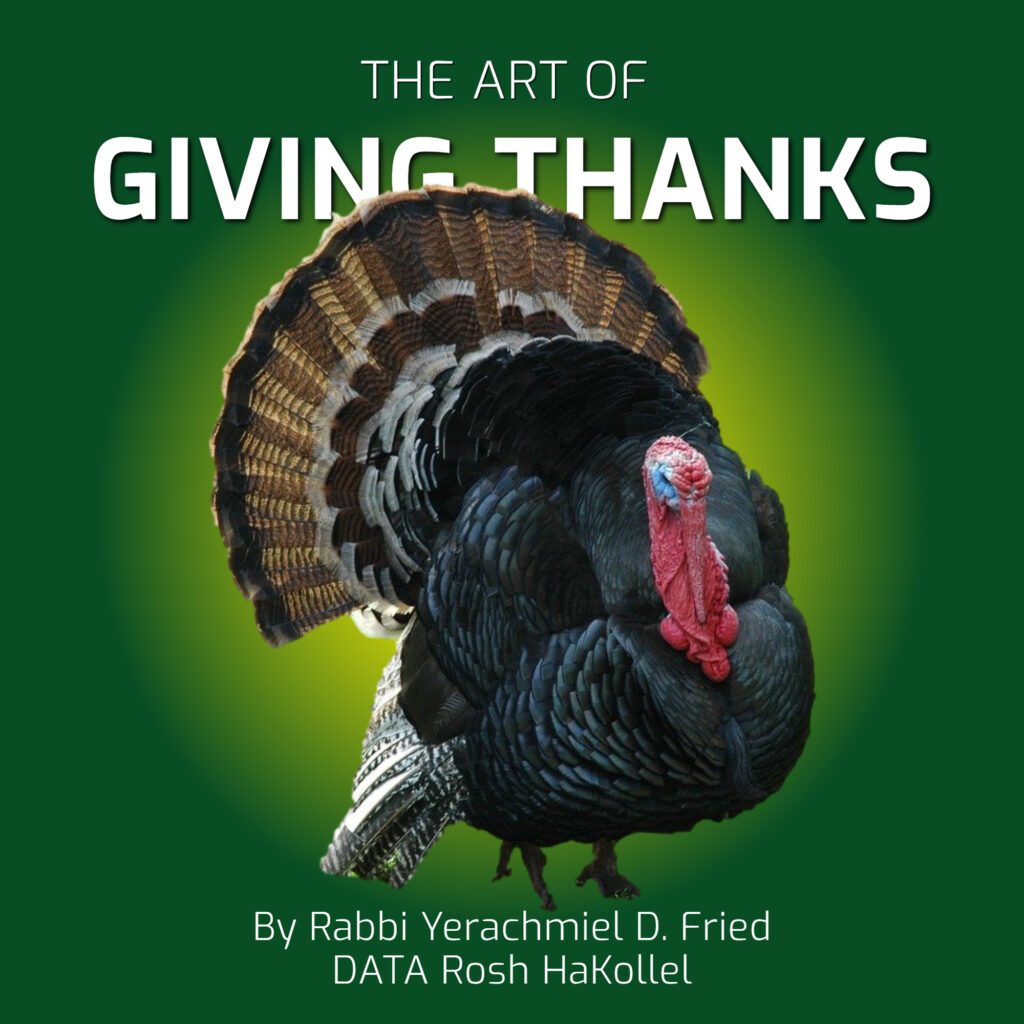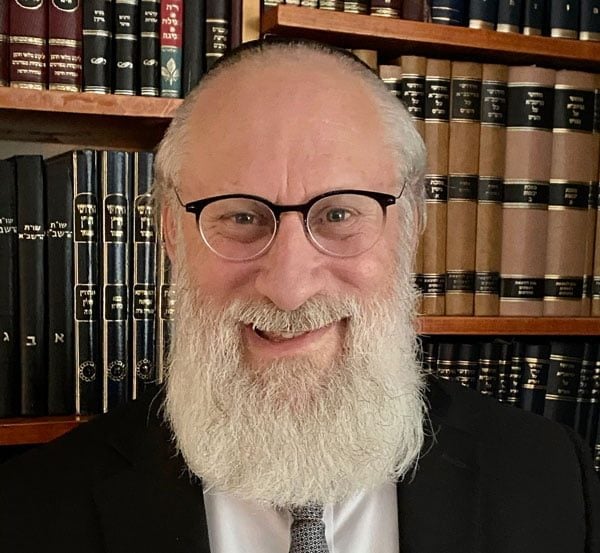Ask the Rabbi: The Art of Giving Thanks. By Rabbi Yerachmiel D. Fried

Dear Rabbi Fried,
My grandfather says that since we live in America and Thanksgiving is a generic American holiday, then we have as much an obligation to observe Thanksgiving as we have to observe Passover. My Sunday school teacher disagrees, but since she’s not a rabbi, I wanted to have your opinion. Thank you.
Erica L.
Dear Erica,
The concept of thanksgiving is one of the most, if not the most, central ideas of what Judaism is all about. We have myriad mitzvos, customs and rituals, whose key purpose is to show appreciation to G‑d for all the kindness He bestows upon us continually. Passover, for example, is all about showing appreciation for freeing us from Egypt through miracles and forging us into His nation. The theme of Sukkot is appreciation to G‑d for sustaining us for 40 years in the desert, providing roofs and clouds over our heads to protect us from the sun and heat.
The Haggadah is not just the story of what transpired; it ends with the Hallel prayer, which is a thanksgiving prayer from the book of Psalms. This is to tell us that the purpose of relating the events of Exodus is actually to bring us to a joyous expression of thanksgiving for all the love G‑d showed us, and to use that as a foundation for our outlook throughout the year. The birth of the Jewish people came through thanksgiving, is celebrated by thanksgiving, and forged a thankful, appreciative people.
One of the early classical texts of Jewish philosophy, the “Duties of the Heart” (from about 900 years ago), contains a section that discusses the overall reason for which we serve G‑d and observe mitzvos. He maintains that the core concept that compels us to serve G‑d, is appreciation. He discusses how we lose our appreciation as we take life for granted, much as a child takes it for granted that her parents provide for her, and that there will be cereal and milk on the table in the morning when she wakes up.
Appreciation means focusing on your blessings without taking them for granted. One needs only to see one who can’t walk to stop taking her own ability to walk for granted and thank G‑d for that ability. All 613 mitzvos, as well as the 100 blessings we recite daily, are all opportunities to stop, focus, and express thanksgiving for all we have, and for the gift of life itself.
The Jewish people certainly don’t need an official day of thanksgiving to express that idea, as we are the Light Unto the Nations in teaching and expressing precisely this core principle to the rest of the world. In fact, the very name “Jew” comes from Yehuda, the root of which is “hoda’ah”, appreciation!
Living in America doesn’t raise that observance of Thanksgiving to the level of obligation like Passover. However, one should use their Thanksgiving celebration as a reminder what we Jews stand for and to express much appreciation to G-d for allowing us to live in a country like America where we have freedom of religion. We should also focus on appreciation to our parents, employers, friends, G‑d and even our spouses for all they do for us throughout the year.




